Private Property Quotes
Quotes tagged as "private-property"
Showing 1-30 of 54
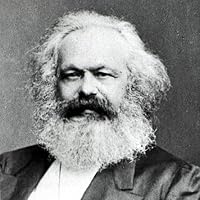
“You are horrified at our intending to do away with private property. But in your existing society private property is already done away with for nine-tenths of the population; its existence for the few is solely due to its non-existence in the hands of those nine-tenths. You reproach us, therefore, with intending to do away with a form of property, the necessary condition for whose existence is the non-existence of any property for the immense majority of society.
In one word, you reproach us with intending to do away with your property. Precisely so: that is just what we intend.”
― The Communist Manifesto
In one word, you reproach us with intending to do away with your property. Precisely so: that is just what we intend.”
― The Communist Manifesto
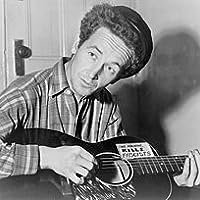
“As I went walking I saw a sign there
And on the sign it said "No Trespassing."
But on the other side it didn't say nothing,
That side was made for you and me.
This land is your land, this land is my land
From California to the New York island
From the Redwood forest to the Gulf Stream waters
This land was made for you and me.”
―
And on the sign it said "No Trespassing."
But on the other side it didn't say nothing,
That side was made for you and me.
This land is your land, this land is my land
From California to the New York island
From the Redwood forest to the Gulf Stream waters
This land was made for you and me.”
―

“But modern bourgeois private property is the final and most complete expression of the system of producing and appropriating products, that is based on class antagonisms, on the exploitation of the many by the few.”
― The Communist Manifesto
― The Communist Manifesto

“Still, in 1877, Engels wanted to protect us from false socialism. Still then, in Anti-Dühring, he wrote that not any nationalization is socialist, because in the contrary case both Bismarck and Napoleon would have to be arranged among the founders of socialism.”
― Socialism Is Dead! Long Live Socialism!: The Marx Code-Socialism with a Human Face
― Socialism Is Dead! Long Live Socialism!: The Marx Code-Socialism with a Human Face

“The so-called “socialism” exceeded the mangiest recommendations of Keynes! Such a regulated state capitalism, such an intervention of the state in the economy like “socialism” does, Keynes had not even dreamed possible! The exceptional assistance of the state for the monopolies and their coalescence in a constitution—still after the receipt of Keynes! There is no better application of Keynes’s doctrine than the “socialism” of the twentieth century! Keynesian doctrine is an ideology of étatism, which strangely, was proclaimed as an essence of socialism! Keynes—the ideologist of the national debt, of the chronic budgetary deficit, and the inflation! His idea is the militarization of the economy, increasing workmen’s taxes, regulation of incomes through a “moderate inflation” in favor of the rich and the “solution” of the economic crises by regulation of the money circulation. All that was so well carried and applied in the “socialist” system that Keynes himself would have to wonder and to be proud of his “communist” disciples! Actually, Keynes, by observing the Soviet Union, had understood well the role of the state and the monopoly of the capital and sincerely recognized, by contrast with Stalin and the others after him, that they were used in a wonderful manner for the confirmation and for the perpetuation of the sovereignty of capitalism but not for its abolition. His “planned capitalism” is the same “planned socialism” of the twentieth century!”
― Socialism Is Dead! Long Live Socialism!: The Marx Code-Socialism with a Human Face
― Socialism Is Dead! Long Live Socialism!: The Marx Code-Socialism with a Human Face

“Just the class division of society creates two different, two parallel worlds/antipodes in this very society. And this means yet two polar models of behavior in the political life of the society—the democracy of the rich class is in fact a dictatorship for the poor one! In other words, the state is not of people and democracy is not for all.”
― Socialism Is Dead! Long Live Socialism!: The Marx Code-Socialism with a Human Face
― Socialism Is Dead! Long Live Socialism!: The Marx Code-Socialism with a Human Face

“Throughout the world what remains of the vast public spaces are now only the stuff of legends: Robin Hood’s forest, the Great Plains of the Amerindians, the steppes of the nomadic tribes, and so forth… Rousseau said that the first person who wanted a piece of nature as his or her own exclusive possession and transformed it into the transcendent form of private property was the one who invented evil. Good, on the contrary, is what is common.”
― Impero
― Impero
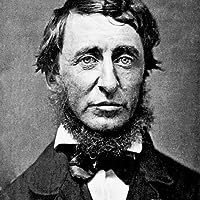
“At present, in this vicinity, the best part of the land is not private property; the landscape is not owned, and the walker enjoys comparative freedom. But possibly the day will come when it will be partitioned off into so-called pleasure-grounds, in which a few will take a narrow and exclusive pleasure only,—when fences shall be multiplied, and man-traps and other engines invented to confine men to the public road, and walking over the surface of God’s earth shall be construed to mean trespassing on some gentleman’s grounds. To enjoy a thing exclusively is commonly to exclude yourself from the true enjoyment of it. Let us improve our opportunities, then, before the evil days come.”
― Walking
― Walking
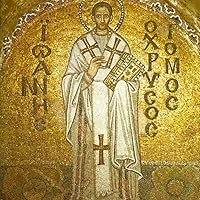
“Do not say I use what is mine: you use what is alien to you; the indulgent, selfish use makes what is yours something alien; that is why I call it alien good, because you use it with a hardened heart and claim that it is right, that you alone live from what is yours.”
―
―
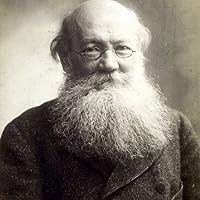
“Each of the atoms composing what we call the Wealth of Nations owes its value to the fact that it is a part of the great whole. [. . .] Millions of human beings have laboured to create this civilization on which we pride ourselves to-day. Other millions, scattered through the globe, labour to maintain it. Without them nothing would be left in fifty years but ruins. [. . .] Science and industry, knowledge and application, discovery and practical realization leading to new discoveries, cunning of brain and of hand, toil of mind and muscle — all work together. Each discovery, each advance, each increase in the sum of human riches, owes its being to the physical and mental travail of the past and the present. By what right then can any one whatever appropriate the least morsel of this immense whole and say — This is mine, not yours?”
― The Conquest of Bread
― The Conquest of Bread
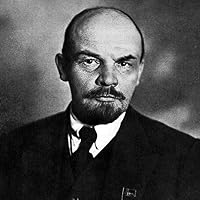
“Private property based on the labour of the small proprietor, free competition, democracy, i.e., all the catchwords with which the capitalists and their press deceive the workers and the peasants- are things of the past. Capitalism has grown into a world system of colonial oppression and of the financial strangulation of the overwhelming majority of the people of the world by a handful of "advanced" countries. And this "booty" is shared between two or three powerful world marauders armed to the teeth"..."who involve the whole world in their war over the sharing of their booty.”
― Imperialism: The Highest Stage of Capitalism
― Imperialism: The Highest Stage of Capitalism
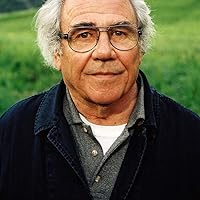
“New form of redemption: debt, companies, crimes, scandals - as in the past with slaves, everything must be redeemed. Everything must be transfigured and at the same time, as in the sales, everything must go. Everywhere the tiniest waste product, the slightest desire is being given its hour of glory. But the historic prototype of redemption is that of work, which was granted such moral and historical value only so as to enable the slave to accede to it as a free man. In this way the curse fulfils itself.”
― Cool Memories V: 2000 - 2004
― Cool Memories V: 2000 - 2004
“Anarchists are socialists because they want the improvement of society, and they are communists because they are convinced that such a transformation of society can only result from the establishment of a commonwealth of property.”
― An Anarchist Reader
― An Anarchist Reader
“What are the evils associated with private property? Simply, that private property signifies a sanctuary in which the individual is free from the control of government officials.”
―
―

“More than the homeless, we have, not only money and possessions, but also potential ‘sources’ of things such as worry and unhappiness.”
―
―

“Your brain is your own personal property, a little bit like a private part, so whatever it decides to think of me is therefore barely my business.”
―
―
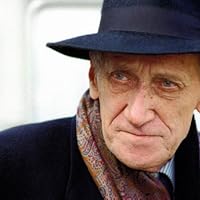
“it was Marx who declared that the whole idea of Communism could be summed up in a single formula—the abolition of private property; that the state of the future must take over the centralized management of the means of production, and that the abolition of capital meant the abolition of wage-labour. There was nothing flagrantly illogical in deducing from this that the expropriation of the bourgeoisie and the nationalization of industry and agriculture would bring about the general emancipation of mankind.”
― Main Currents Of Marxism: The Founders, The Golden Age, The Breakdown
― Main Currents Of Marxism: The Founders, The Golden Age, The Breakdown

“They say, 'No private property', and immediately after strive to maintain private property in its daily manifestations. 'You shall be a commune as far as regards production: fields, tools, machinery, all that has been invented up till now - factories, railways, harbours, mines, etc., all are yours. Not the slightest distinction will be made concerning the share of each in this collective property.
'But from tomorrow you will minutely debate the share you are going to take in the creation of new machinery, in the digging of new mines. You will carefully weigh what part of the new produce belongs to you. You will count your minutes of work, and you will take care that a minute of your neighbours should not buy more than yours.
'And as an hour measures nothing, as in some factories a worker can see to six power-looms at a time, while in another he only tends two, you will weigh the muscular force, the brain energy, and the nervous energy you have expended. You will accurately calculate the years of apprenticeship in order to appraise the amount each will contribute to future production. And this - after having declared that you do not take into account his share in past production.'
Well, for us it is evident that a society cannot be based on two absolutely opposed principles, two principles that contradict one another continually. And a nation or a commune which would have such an organization would be compelled to revert to private property in the instruments of production, or to transform itself into a communist society.”
― The Conquest of Bread and Other Writings
'But from tomorrow you will minutely debate the share you are going to take in the creation of new machinery, in the digging of new mines. You will carefully weigh what part of the new produce belongs to you. You will count your minutes of work, and you will take care that a minute of your neighbours should not buy more than yours.
'And as an hour measures nothing, as in some factories a worker can see to six power-looms at a time, while in another he only tends two, you will weigh the muscular force, the brain energy, and the nervous energy you have expended. You will accurately calculate the years of apprenticeship in order to appraise the amount each will contribute to future production. And this - after having declared that you do not take into account his share in past production.'
Well, for us it is evident that a society cannot be based on two absolutely opposed principles, two principles that contradict one another continually. And a nation or a commune which would have such an organization would be compelled to revert to private property in the instruments of production, or to transform itself into a communist society.”
― The Conquest of Bread and Other Writings

“Collectivists begin by proclaiming a revolutionary principle - the abolition of private property - and then they deny it, no sooner than proclaimed, by upholding an organization of production and consumption which originated in private property.”
― The Conquest of Bread and Other Writings
― The Conquest of Bread and Other Writings
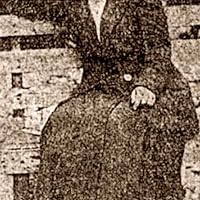
“My great worry is the problem of poverty…Instead of prisons, I would have schools, art and vocational academies, free trade, free love, the abolition of marriage and the substitution of private property for public property.”
―
―
“In principle the human productive community may be constituted in either
of two ways. First, it may be consciously regulated. Whether its scale
is that of a self-sufficient patriarchal family, a communistic tribe, or
a socialist society, it creates the organs which, acting as the agents
of social consciousness, fix the extent and methods of production and
distribute the social product thus obtained among the members. Given the
material and man-made conditions of production, all decisions as to
method, place, quantity and available tools involved in the production
of new goods are made by the /pater familias, /or by the local regional
or national commissars of the socialist society. The personal experience
of the former gives him a knowledge of the needs and productive
resources of his family; the latter can acquire a like knowledge of the
requirements of their society by means of comprehensively organized
statistics of production and consumption. They can thus shape, with
conscious foresight, the whole economic life of the communities of which
they are the appointed representatives and leaders in accordance with
the needs of the members. The individual members of such a community
consciously regulate their productive activity as members of a
productive community. Their labour process and the distribution of their
products are subject to central control. Their relations of production
are directly manifest as social relations, and the economic relations
between individuals can be seen as being determined by the social order,
by social arrangements rather than by private inclination. Relations of
production are accepted as those which are established and desired by
the whole community.
Matters are different in a society which lacks this conscious
organization. Such a society is dissolved into a large number of
mutually independent individuals for whom production is a private matter
rather than a social concern. In other words, its members are individual
proprietors who are compelled by the development of the division of
labour to do business with one another. The act by which this is
accomplished is the exchange of commodities. It is only this act which
establishes connections in a society otherwise dismembered into
disparate units by private property and the division of labour. Exchange
is the subject matter of theoretical economics only because, and to the
extent that, it performs this mediating function in the social
structure. It is of course true that exchange may also take place in a
socialist society, but that would be a type of exchange occurring only
after the product had already been distributed according to a socially
desired norm. It would therefore be merely an individual adaptation of
the distributive norm of society, a personal transaction influenced by
subjective moods and considerations. It would not be an object for
economic analysis. It would have no more importance for theoretical
analysis than does the exchange of toys between two children in the
nursery, an exchange which is fundamentally different in character from
the purchases made by their fathers at the toy shop. For the latter is
only one element in the sum of exchanges by which society realizes
itself as the productive community which it really is. A productive
community must express itself in such acts of exchange because only in
this way can the unity of society, dissolved by private property and the
division of labour, be restored.”
― Finance Capital: A study in the latest phase of capitalist development
of two ways. First, it may be consciously regulated. Whether its scale
is that of a self-sufficient patriarchal family, a communistic tribe, or
a socialist society, it creates the organs which, acting as the agents
of social consciousness, fix the extent and methods of production and
distribute the social product thus obtained among the members. Given the
material and man-made conditions of production, all decisions as to
method, place, quantity and available tools involved in the production
of new goods are made by the /pater familias, /or by the local regional
or national commissars of the socialist society. The personal experience
of the former gives him a knowledge of the needs and productive
resources of his family; the latter can acquire a like knowledge of the
requirements of their society by means of comprehensively organized
statistics of production and consumption. They can thus shape, with
conscious foresight, the whole economic life of the communities of which
they are the appointed representatives and leaders in accordance with
the needs of the members. The individual members of such a community
consciously regulate their productive activity as members of a
productive community. Their labour process and the distribution of their
products are subject to central control. Their relations of production
are directly manifest as social relations, and the economic relations
between individuals can be seen as being determined by the social order,
by social arrangements rather than by private inclination. Relations of
production are accepted as those which are established and desired by
the whole community.
Matters are different in a society which lacks this conscious
organization. Such a society is dissolved into a large number of
mutually independent individuals for whom production is a private matter
rather than a social concern. In other words, its members are individual
proprietors who are compelled by the development of the division of
labour to do business with one another. The act by which this is
accomplished is the exchange of commodities. It is only this act which
establishes connections in a society otherwise dismembered into
disparate units by private property and the division of labour. Exchange
is the subject matter of theoretical economics only because, and to the
extent that, it performs this mediating function in the social
structure. It is of course true that exchange may also take place in a
socialist society, but that would be a type of exchange occurring only
after the product had already been distributed according to a socially
desired norm. It would therefore be merely an individual adaptation of
the distributive norm of society, a personal transaction influenced by
subjective moods and considerations. It would not be an object for
economic analysis. It would have no more importance for theoretical
analysis than does the exchange of toys between two children in the
nursery, an exchange which is fundamentally different in character from
the purchases made by their fathers at the toy shop. For the latter is
only one element in the sum of exchanges by which society realizes
itself as the productive community which it really is. A productive
community must express itself in such acts of exchange because only in
this way can the unity of society, dissolved by private property and the
division of labour, be restored.”
― Finance Capital: A study in the latest phase of capitalist development

“Stalin formulated the economic aims of socialism as: “The securing of the maximum satisfaction of the constantly rising material and cultural requirements of the whole society.” [Economic Problems of Socialism in U.S.S.R., English edition, p. 45.]
Taken positively, this has no more content than any metaphysical slogan; like the slogan “All men are equal,” it expresses its point of view through negations. “Constantly rising” requirements means that there is no foreseeable limit to the possible rise in productivity (for, of course, it is not so much the needs as the means to satisfy them that will continually increase). “Cultural” requirements means that growing wealth is not to be confined to physical goods (though these alone enter into the Marxist definition of output). “The whole society” implies a condemnation of the arbitrary distribution of wealth.
There is nothing in this that the orthodox economists can object to. Indeed, it takes the very words out of their mouth. But they were wont to excuse the inequality generated by private property in the means of production because it was necessary to make total income greater. If income grows faster without it, they are in an awkward situation. Perhaps this is why they have crept off to hide in thickets of algebra and left the torch of ideology to be carried by the political argument that capitalist institutions are the bulwark of liberty. [pp. 109-110]”
― Economic Philosophy
Taken positively, this has no more content than any metaphysical slogan; like the slogan “All men are equal,” it expresses its point of view through negations. “Constantly rising” requirements means that there is no foreseeable limit to the possible rise in productivity (for, of course, it is not so much the needs as the means to satisfy them that will continually increase). “Cultural” requirements means that growing wealth is not to be confined to physical goods (though these alone enter into the Marxist definition of output). “The whole society” implies a condemnation of the arbitrary distribution of wealth.
There is nothing in this that the orthodox economists can object to. Indeed, it takes the very words out of their mouth. But they were wont to excuse the inequality generated by private property in the means of production because it was necessary to make total income greater. If income grows faster without it, they are in an awkward situation. Perhaps this is why they have crept off to hide in thickets of algebra and left the torch of ideology to be carried by the political argument that capitalist institutions are the bulwark of liberty. [pp. 109-110]”
― Economic Philosophy

“Neither Italian fascism nor German National-"Socialism" has anything in common with such a [Soviet socialistic] society. Primarily, this is because the private ownership of the factories and works, of the land, the banks, transport, etc., has remained intact, and, therefore, capitalism remains in full force in Germany and in Italy.”
―
―

“That the Open Society cannot exist without extensive individual property rights that clearly identify endowments and freedom to employ them does not imply that all resources, much less all decision-making, is to be privatized. Whether privatization is the best way to make resource decisions depends on the nature of the resources and the moral norms of a population. Consequently, it is mistake to claim that the Open Society requires 'full liberal ownership rights' over the maximally large range of resources. This merits emphasis: that robust individual property rights are required for the Open Society does not entail that expanding the sphere of private property is always friendly to the Open Society.”
― The Open Society and Its Complexities
― The Open Society and Its Complexities
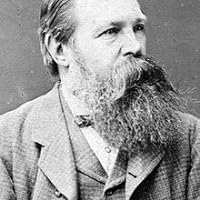
“In some ways it is the ultimate alienation in our society that the ability to give birth has been transformed into a liability. The reason is not simply that, since women bear children, they are more limited in their movements and activities. As the foregoing discussion indicates, this was not a handicap even under the limited technology of hunting-gathering life; it certainly has no relevance today.
...
The subjugation of the female sex was based on the transformation of their socially necessary labor into a private service through the separation of the family from the clan.
...
The separation of the family from the clan and the institution of monogamous marriage were the social expressions of developing private property; so-called monogamy afforded the means through which property could be individually inherited.”
― The Origin of the Family Private Property and the State
...
The subjugation of the female sex was based on the transformation of their socially necessary labor into a private service through the separation of the family from the clan.
...
The separation of the family from the clan and the institution of monogamous marriage were the social expressions of developing private property; so-called monogamy afforded the means through which property could be individually inherited.”
― The Origin of the Family Private Property and the State
“Our very word ‘family’ shares a root with the Latin famulus, meaning ‘house slave’, via familia which originally referred to everyone under the domestic authority of a single paterfamilias or male head of household. Domus, the Latin word for ‘household’, in turn gives us not only ‘domestic’ and ‘domesticated’ but dominium, which was the technical term for the emperor’s sovereignty as well as a citizen’s power over private property. Through that we arrive at (literally, ‘familiar’) notions of what it means to be ‘dominant’, to possess ‘dominion’ and to ‘dominate’.”
― The Dawn of Everything: A New History of Humanity
― The Dawn of Everything: A New History of Humanity
“One of the founding European settlements of what would become the United States, Plymouth Colony in Massachusetts, first attempted communal farming on the “assumption that it was the most fitting economic arrangement for a unified religious community. Growing hungry and despairing of the experiment, however, the settlers soon switched to individual family plots, which proved far more fruitful. As the governor of the colony observed, the farmers were far more industrious in tending family plots than they were working the communal grounds. The lesson would be relearned, with a much higher body count, by communist regimes in the twentieth century after their attempts at collective farming.”
― Libertarianism For Beginners
― Libertarianism For Beginners

“Indeed there is a strong general cases, founded on the legitimacy of a considerable degree of egoism and self-referential altruism, and connected with what I have offered as the basic case for rights as the essential device for securing areas for the free pursuit of happiness, in favour of some private property. This is one point among many where our grounds for dissatisfaction with at least the cruder forms of utilitarianism have practical consequences. If we see the good for man as happiness, conceived as a single, undifferentiated commodity, we may also suppose that it could be provided for all, in some centrally planned way, if only we could get an authority that was sufficiently powerful and sufficiently intelligent, and also one that we could trust to be uniformly well-disposed to all its subjects; and then the natural corollary would be that all property should be owned by all in common, collectively, and applied to the maximizing of the genral happiness under the direction of this benevolent authority. But if we reject this unitary notion of happiness, and identify the good for man rather with the partly competitive pursuit of diverse ideals and private goals, then separate ownership of property will be an appropriate instrument for this pursuit.”
― Ethics: Inventing Right and Wrong
― Ethics: Inventing Right and Wrong
All Quotes
|
My Quotes
|
Add A Quote
Browse By Tag
- Love Quotes 98.5k
- Life Quotes 77k
- Inspirational Quotes 74k
- Humor Quotes 44k
- Philosophy Quotes 30k
- Inspirational Quotes Quotes 27.5k
- God Quotes 26.5k
- Truth Quotes 24k
- Wisdom Quotes 24k
- Romance Quotes 23.5k
- Poetry Quotes 22.5k
- Death Quotes 20k
- Life Lessons Quotes 20k
- Happiness Quotes 19k
- Quotes Quotes 18k
- Faith Quotes 18k
- Hope Quotes 18k
- Inspiration Quotes 17k
- Spirituality Quotes 15.5k
- Religion Quotes 15k
- Motivational Quotes 15k
- Writing Quotes 15k
- Relationships Quotes 14.5k
- Life Quotes Quotes 14.5k
- Love Quotes Quotes 14.5k
- Success Quotes 13.5k
- Time Quotes 12.5k
- Motivation Quotes 12.5k
- Science Quotes 12k
- Motivational Quotes Quotes 11.5k

